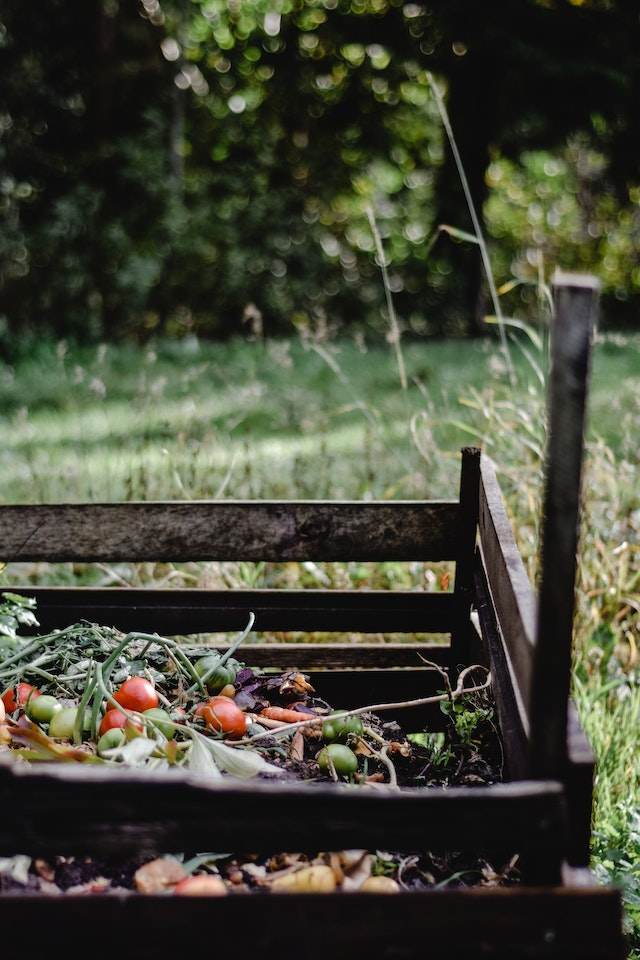Did you know that up to 60% of your household rubbish could be composted? Food waste is a big issue in the UK today, with 70% coming directly from UK homes. While more must be done by the supermarkets to help reduce food waste in stores and educate consumers on waste, we can do our tiny bit by composting anything past its best instead of sending it straight to landfill. Here’s our easy guide on home composting and what to do when you can’t compost at home. Plus, how food waste collection from your home is in the plans for Sheffield City Council.
Benefits of compost
Composting is a simple and effective way to reduce waste and promote a healthy ecosystem in your garden. Composting helps reduce the waste sent to landfills, providing a habitat and food for wildlife.
Using your own compost has many benefits, including saving you money and increasing the organic content in your soil. Think of it as a soil improver, which you can mix with existing soil or bought compost. This boosts fertility and helps plants resist disease and insect attack, reducing the need for chemical controls. Additionally, using compost improves the structure and health of your soil, increasing its water retention and nutrient content. Healthy soil feeds the microorganisms that digest the organic matter and keeps all the bugs and beetles happy!
How to compost at home
Home composting couldn’t be easier; you only need waste, air, and water. A simple heap covered with old carpet or sturdy plastic can be just as effective as a bin. The only advantage of a container is that it looks tidier and can be easier to manage. Try to pick a shady spot to keep things moist, and water any dry ingredients you may be adding. A good mix of greens (Nitrogens) and browns (Carbon) will keep the compost working.
Here’s what you can put in the bin.
- Grass cuttings, dead leaves, old cut flowers, prunings and dead plants.
- Fruit and vegetable scraps and peel, coffee grounds and tea bags (As long as the teabag doesn’t contain plastic, check the label).
- Plain cardboard (never use glossy papers or card) or shredded paper
- Pet droppings from healthy vegetable-eating pets, including gerbils, rabbits, hamsters and birds, and any bedding made from natural material or newspaper.
What to avoid adding to your compost.
- Meat, fish, bones and cooked foods. You can add eggshells, but some gardeners find this can attract rats.
- Cat litter, dog poo, disposable nappies or human poo.
- Coal and coke ash, glossy paper, painted/treated woods.
- Weeds and plants that have gone to seed or are diseased.
It is essential to mix the contents of the heap every now and again to aerate it – wait at least three months to turn your heap with a gardening fork or shovel. But be careful, especially in the winter and early spring when animals may be hiding or hibernating in your pile. Your compost is ready to use when it becomes dark and crumbly.
Composting in the community
Composting isn’t just for the individual, though. Larger compost projects can provide all the benefits of a home composting system, like increased biodiversity and reduced waste, with additional benefits for the community. They are also especially vital for those who can’t compost easily at home due to space, accessibility or time. Food and garden waste generated by the people can be used to create compost that ultimately is used to feed the people once more. Community compost projects can make sustainable compost on a larger scale, which could be used in urban growing projects and local farms. This would reduce reliance on bought compost and avoid using climate-damaging peat compost. People would contribute to local food growing and helping tackle climate issues by simply putting their waste to good use. But, first, we need the facilities, training and funding to make local composting a viable option for the many, not the few.
City Wide Composting
Sheffield City Council is implementing a separate food waste collection for every household in the city. This new approach, part of a 2020 environmental bill, aims to stop all food waste entering landfills by 2030. A trial for the composting took place in the summer of 2022, designed to provide insights on the best possible service when a permanent, citywide food waste recycling service is introduced in the future. But what that will look like is yet to be determined.
We hope to see our food waste being put to good use in a composting facility where the resulting rich earth is used to grow delicious, nutritious local food for Sheffield folks. The closed-loop system would significantly impact the waste Sheffield produces and help make our food system and society greener. If you’d like to learn more, why not attend one of ShefFood’s Growing & Composting working group meetings? This working group drives and supports strategy, research, learning and projects that cultivate better growing and composting in Sheffield. Visit the website to learn more: ShefFood.org.uk.

